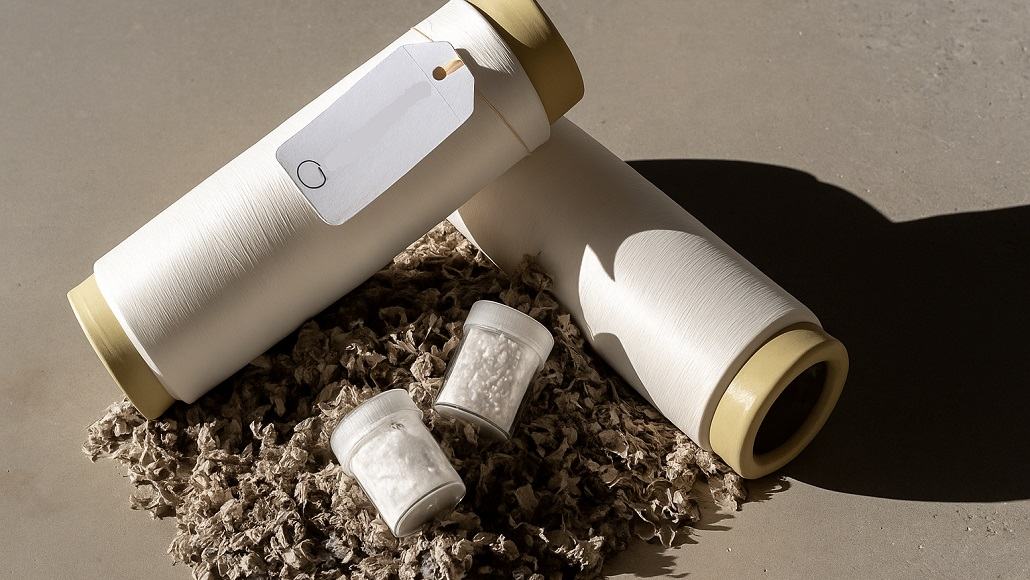Samsara Eco has signed a long-term contract with Lululemon, positioning its materials to account for approximately 20% of the athletic apparel company’s total fiber portfolio. This initiative supports Lululemon’s goal to increase its use of preferred materials by 2030.
This announcement builds on an existing collaboration between the two companies, which began in 2023 when they formed a multi-year partnership to create what Samsara Eco labels as the “world’s first infinitely recycled nylon 6,6 and polyester.”
Last year, they unveiled the first product sample made from enzymatically recycled nylon 6,6 and launched Lululemon’s premier enzymatically recycled polyester item, a special edition Packable Anorak. These offerings demonstrate the potential for enzymatically recycled textiles to meet the aesthetic, texture, and performance standards expected from Lululemon’s products.
Ted Dagnese, Lululemon’s Chief Supply Chain Officer, emphasized the importance of collaborative efforts in scaling circular materials, stating, “Our partnership with Samsara Eco is a powerful example of what’s possible when innovation meets collaboration.” He added that as they strive towards their 2030 impact goals, the company is committed to diversifying its partnerships to reduce reliance on fossil-fuel-derived resources.
Samsara Eco specializes in enzymatic recycling of nylon 6,6, and also processes polyester and various plastics, utilizing engineered enzymes that break down plastic to its fundamental components. These components can then be reintegrated into standard manufacturing workflows to create new products.
Paul Riley, Founder and CEO of Samsara Eco, remarked, “Our expanded partnership with Lululemon signifies a significant step towards establishing a fully circular ecosystem, showcasing the industry’s commitment to transitioning to more sustainable materials.” He expressed optimism about the future of circular apparel, stating that technology for producing circular materials is ready for adoption by progressive companies.
To support its commercialization efforts, Samsara Eco plans to open a new facility in Jerrabomberra, New South Wales, aimed at increasing production capacity and advancing its EosEco enzyme technology. The company also has plans for an international commercial plant set to launch in 2028.
This partnership illustrates a growing trend towards sustainability in the textile industry, as both companies work to pioneer circular solutions that could shape the future of fashion.
































